Wagner Group rebellion exposes Putin’s weakness
Prigozhin said he was ordering his troops to halt their march on Moscow after reaching a deal to resolve the crisis. The Kremlin announced that it will drop charges against the mercenary leader, who can take refuge in Belarus

Russia’s war in Ukraine has escalated to a new level. In a shock twist, a rebellion led by Wagner Group chief Yevgeny Prigozhin appeared on Saturday to develop into a short-lived military coup. After seizing official buildings in the southern city of Rostov-on-Don — which borders Ukraine and is an important logistical hub for the Kremlin’s war effort — and launching a column of armored vehicles towards Moscow, Prigozhin announced Saturday evening that he was halting the march towards the capital and that his soldiers would retreat to their camps “to avoid bloodshed.”
At the end of a frenetic day, the Kremlin announced that it planned to drop all charges against Prigozhin and the soldiers who took part in the uprising. And that the Wagner leader, whose whereabouts Putin’s spokesman said were unknown, would be allowed to take refuge in Belarus.
Prigozhin’s rebellion against the Defense Ministry, which turned into the first coup attempt Russia has seen in three decades, has weakened Russian President Vladimir Putin and his regime as it faces the Ukrainian counteroffensive.
“Now the moment has come when blood can be shed,” said Prigozhin in an audio broadcast on one of his Telegram channels. “Therefore, realizing all the responsibility for the fact that Russian blood will be shed from one side, we will turn our convoys around and go in the opposite direction to our field camps.”
According to Western intelligence sources, behind-the-scenes negotiations with the mercenary chief to halt the march took place all day long. Since Saturday morning, Prigozhin escalated his defiance and rebellion by seizing the center of the border town of Rostov-on-Don and then ignored Putin’s warnings to stand down.
Belarusian President Aleksandr Lukashenko claimed credit for negotiating the deal, saying in a statement that an “absolutely profitable and acceptable” agreement had been reached and that he had been given unspecified “security guarantees” for the mercenaries. Prigozhin’s revolt was extremely risky: the businessman does not have the support of the elites.
During Friday night and Saturday day, Prigozhin crossed his own personal Rubicon. Backed into a corner by his escalating dispute with Russian Defense Minister Sergei Shoigu, he launched a rebellion that, even if it has fizzled out now, could not be without consequences. President Putin — who until Saturday had permitted Prigozhin’s quarrels with his defense minister — charged against the mercenaries chief, accusing Prigozhin of treason and “stabbing the Russian people in the back.” He promised to crush the coup, promising to “decisive action” to stabilize the situation.
Prigozhin and his mercenaries met little opposition in their march towards Moscow. There were several attacks from the air with regular army helicopters, gunfire from a fighter plane and two fuel tanks were blown up to hinder their advance. The uprising is the most serious threat the Kremlin has faced since the Chechen war two decades ago. The situation may fuel internal conflicts in Russia, triggered by the defeats of the Kremlin forces in Ukraine and the lack of means, material and preparation of Russia’s troops. Prigozhin has denounced all these problems in a constant litany that has helped him gain greater visibility.
The Wagner crisis and its resolution are of grave geopolitical importance, given Russia possesses one of the world’s largest arsenals of nuclear weapons. Globally, it was met with a muted global reaction. The G-7 countries held an emergency call and, together with the EU and NATO allies, said they were closely monitoring the situation. But they did not venture to say more, fearing the Kremlin could use their words in their rhetoric against the West. Instead, they described the situation as an “internal problem” for Russia. Meanwhile, Russia’s Foreign Ministry warned Western countries against trying to “exploit” the Wagner Group rebellion “to achieve their Russophobic goals.”
Russian authorities on Saturday declared an “anti-terrorist operations regime” in Moscow, which allowed them to close roads, monitor conversations and restrict movement. Before Prigozhin announced an end to the Wagner Group’s so-called “march for justice,” Moscow Mayor Sergey Sobyanin declared that next Monday would be a non-working day — except for security forces and city services — and urged citizens to avoid the streets.
In a fiery speech on Saturday, Putin lashed out at what he considered the mercenary leader’s betrayal — until now, Prigozhin had been loyal to the Russian president and left him out of his verbal attacks against Shoigu, Moscow elites and “corrupt bureaucrats.” Without mentioning Prigozhin by name, Putin compared Saturday’s uprising to the 1917 revolution that destroyed the Russian Empire, “when the country was fighting World War I, but its victory was stolen.”
“We will not let this happen again. We will protect our people and state from any threats, including internal betrayal. What we’re facing is exactly a betrayal,” said Putin in a five-minute speech broadcast Saturday morning on state TV. “Big ambitions and personal interests led to treason. Betrayal of one’s own country and people and of the cause that fighters of Wagner were dying for alongside our soldiers.”
“Any internal mutiny is a deadly threat to our state, to us as a nation. It’s a blow against Russia, against our people. And our actions to defend the fatherland from such a threat will be brutal,” said Putin, who added that security forces had been ordered to regain control of the city of Rostov-on-Don. Information from flight tracking and registration websites showed that at least two aircraft of the fleet that carries the Kremlin leadership flew from Moscow to St. Petersburg on Saturday afternoon. Kremlin spokesman Dmitry Peskov maintained that Putin was still in the capital.
In response to Putin’s speech, Prigozhin released an audio message on his Telegram channels, in which he argued that the Russian president was “sorely mistaken” and defended Wagner mercenaries as the true patriots of Russia. “No one is going to give themselves up at the request of the president, the [Russian secret service] FSB or anyone else. We don’t want this country to go on living in corruption, deception and bureaucracy,” said Prigozhin, hours before standing down, in a heated message against military elites, whom he accuses of sending Russian troops unprepared into the “meat grinder” of Ukraine.
The decision to retreat was opposed by some members of the Wagner Group, who have accused Prigozhin of being a politician “like the rest” and of “incriminating” the mercenaries with his rebellion. Messages from mercenaries claiming they were breaking their contract with Wagner went viral on some Telegram channels, although local media footage from Rostov-on-Don, which acted as a base for the mercenaries on Saturday, showed several of them relaxing and talking to citizens.
Window of opportunity for Ukrainian counteroffensive
Wagner’s rebellion may have major consequences for the war in Ukraine due to its implication for frontline troops and the fact that it comes at a decisive moment for the Ukrainian counteroffensive. Ukrainian Deputy Defense Minister Hanna Maliar said Saturday that the rebellion, which exposes the cracks already pervading Russian society, is a “window of opportunity” for her forces. The decision to launch the full-scale invasion of Ukraine has triggered “the inevitable degradation of the Russian state,” she said.
Kyiv, which estimates that Moscow keeps some 400,000 Russian military personnel deployed in Ukraine, welcomed the instability in the invading country. “Everything is just beginning in Russia,” Mykhailo Podolyak, a top adviser to Ukrainian President Volodymyr Zelenskiy, said Saturday, referring to the divisions shaking the neighboring country. According to Podolyak, it was impossible for both sides to emerge unscathed from the revolt: either the Kremlin or Prigozhin had to be defeated.
Контртерористична операція Пригожина (#Вагнер) на території Росії вже призвела до захоплення Ростова, низки федеральних трас, штабів Південного округу та «#СВО». Події набули в Росії широкого розголосу і навіть отримали образливу юридичну оцінку з боку ЦСО #ФСБ, Національного… pic.twitter.com/cYnzl91pvC
— Михайло Подоляк (@Podolyak_M) June 24, 2023
“The split between the elites is now too obvious,” said Podolyak. “Someone must lose.” In a message on Twitter, the adviser also pointed out that the “counter-terrorist operation” had already resulted in the seizure of Rostov, a number of federal highways and the military headquarters of the Southern District.
British intelligence reports say that Russia is facing its biggest domestic challenge in years, in which the degree of the military’s loyalty to the Kremlin will be key. The well-known enmity between Prigozhin and the Kremlin has escalated to “military confrontation” and the passivity with which some Russian military personnel have accepted the mercenary uprising suggests that they accept it, according to the report.
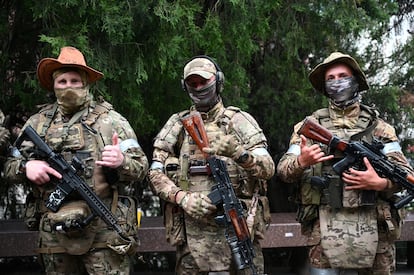
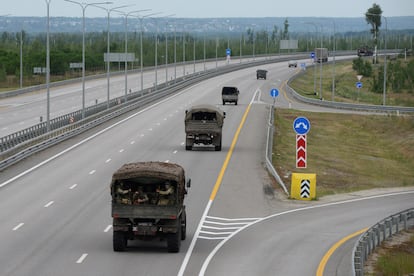
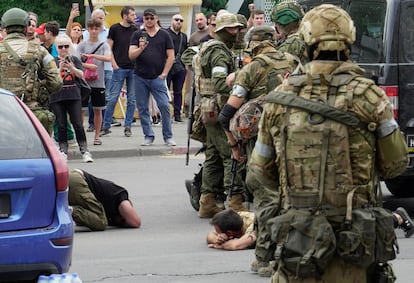
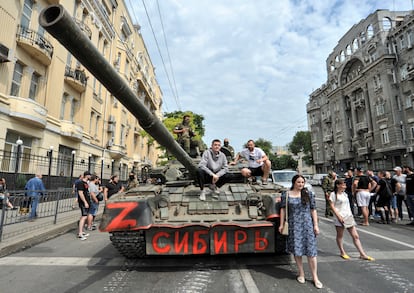
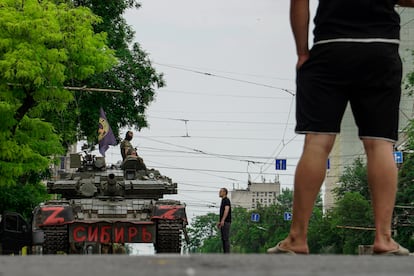
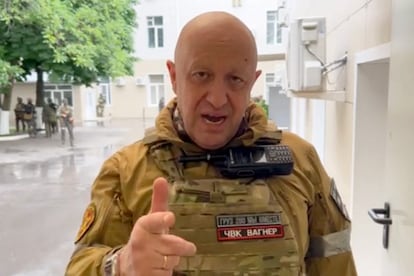
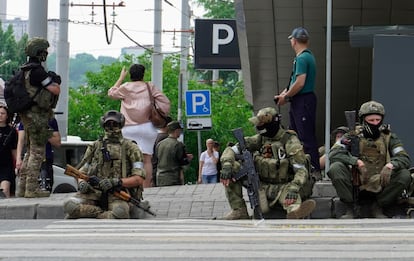
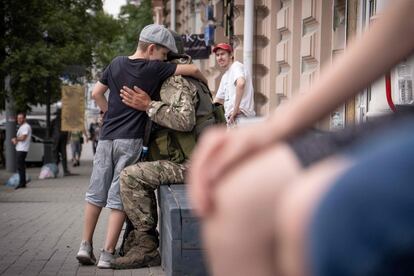
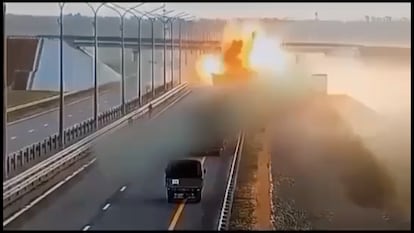
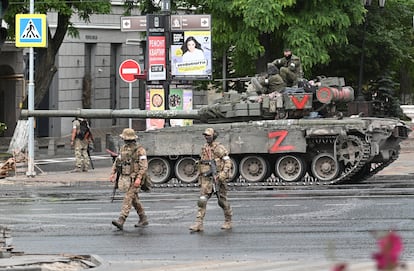
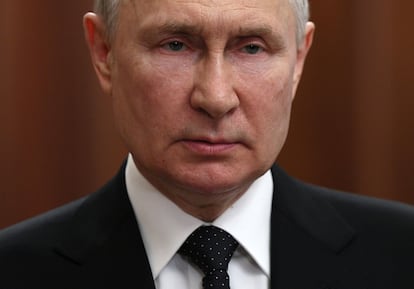
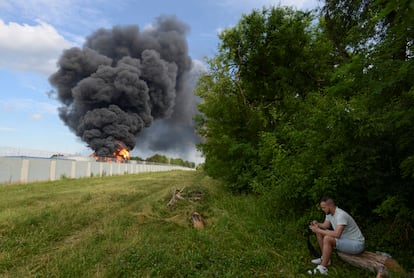
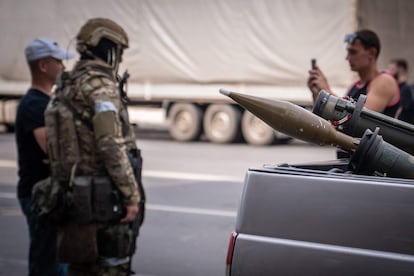
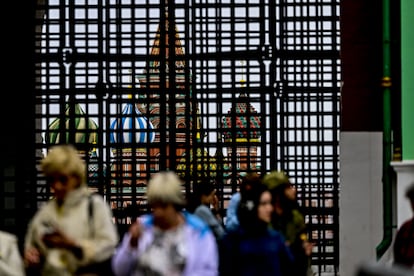
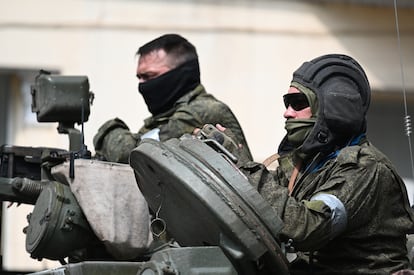
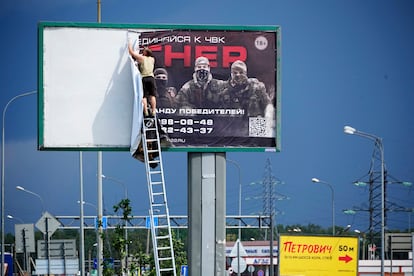
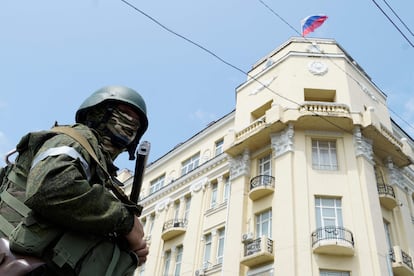
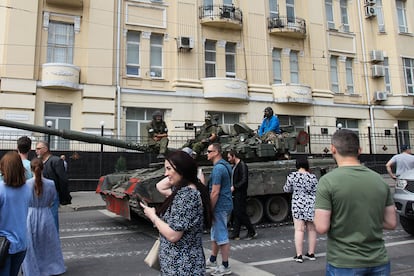
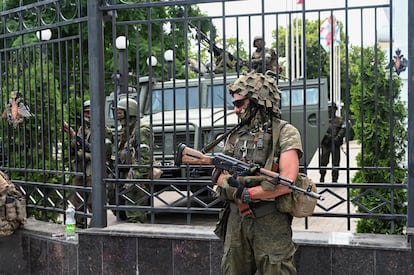
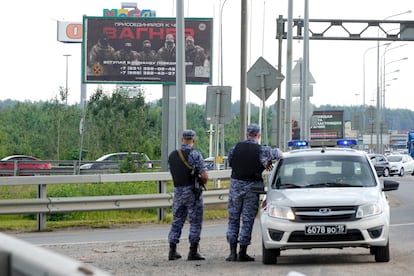
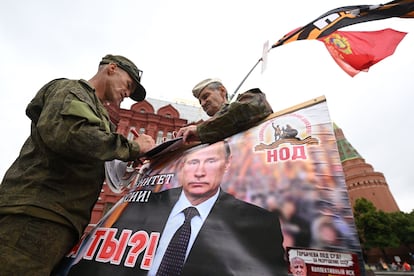
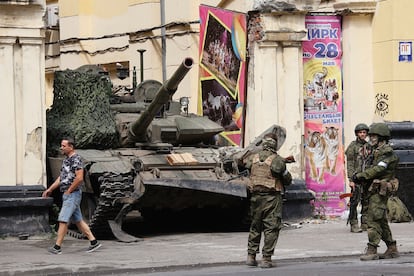
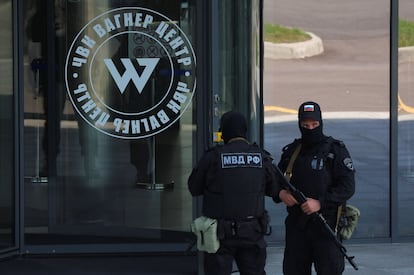
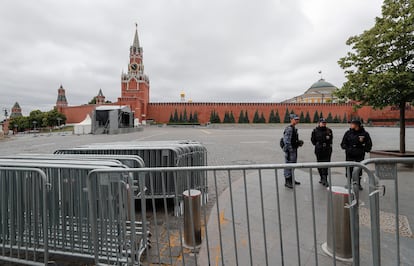
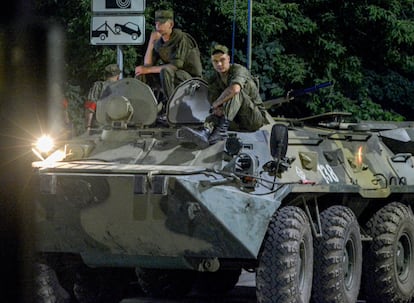
Insults and accusations
The confrontation between Shoigu and Prigozhin peaked last week. After months of insults and veiled accusations that he had been outgunned in the Battle of Bakhmut, Prigozhin recorded a video on Thursday in which he accused the minister of lying about Russia’s “successful” defense on the Zaporizhzhia front. “A huge amount of territory is lost. Soldiers have been killed, three, four times more than what it says in documents shown to the top,” said the Wagner Group chief.
Before Prigozhin announced a halt to the march, the Head of the Chechen Republic Ramzan Kadyrov broke his silence and placed his Praetorian Guard at the Kremlin’s disposal. “The fighters of the Ministry of Defense and the Russian Guard in the Chechen Republic have already left for the zones of tension,” he said on Telegram. “We will do everything to preserve the unity of Russia and protect its statehood! The rebellion must be crushed, and if this requires harsh measures, then we are ready!”
Sign up for our weekly newsletter to get more English-language news coverage from EL PAÍS USA Edition
Tu suscripción se está usando en otro dispositivo
¿Quieres añadir otro usuario a tu suscripción?
Si continúas leyendo en este dispositivo, no se podrá leer en el otro.
FlechaTu suscripción se está usando en otro dispositivo y solo puedes acceder a EL PAÍS desde un dispositivo a la vez.
Si quieres compartir tu cuenta, cambia tu suscripción a la modalidad Premium, así podrás añadir otro usuario. Cada uno accederá con su propia cuenta de email, lo que os permitirá personalizar vuestra experiencia en EL PAÍS.
¿Tienes una suscripción de empresa? Accede aquí para contratar más cuentas.
En el caso de no saber quién está usando tu cuenta, te recomendamos cambiar tu contraseña aquí.
Si decides continuar compartiendo tu cuenta, este mensaje se mostrará en tu dispositivo y en el de la otra persona que está usando tu cuenta de forma indefinida, afectando a tu experiencia de lectura. Puedes consultar aquí los términos y condiciones de la suscripción digital.








































